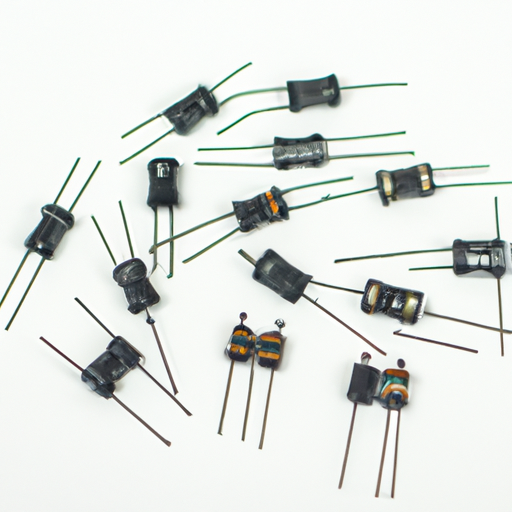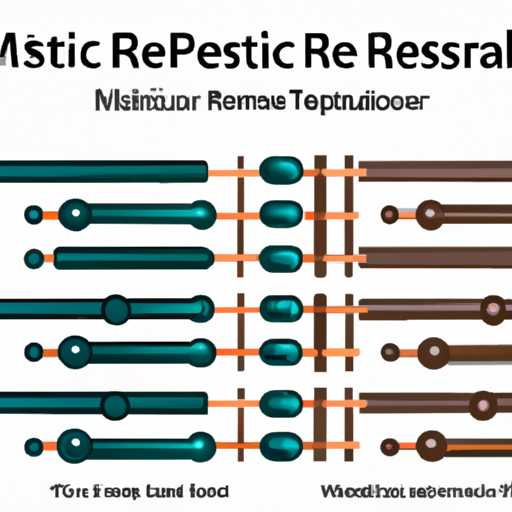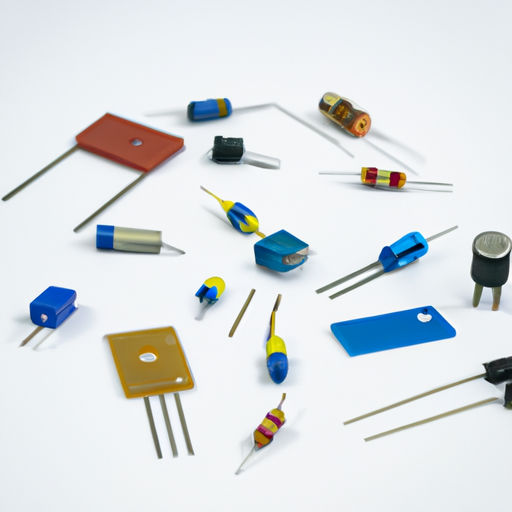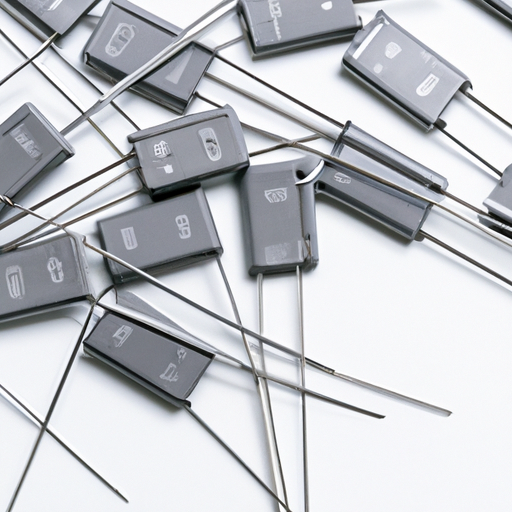What are the Advantages of Resistor Classified Products?
I. Introduction
Resistors are fundamental components in electronic circuits, playing a crucial role in controlling current flow, dividing voltages, and protecting sensitive components. Resistor classified products refer to resistors that are categorized based on specific criteria, such as material composition, power rating, and tolerance levels. Understanding the advantages of these classified products is essential for engineers, designers, and hobbyists alike, as it can significantly impact the performance and reliability of electronic devices. This article aims to explore the various advantages of resistor classified products, highlighting their importance in modern electronics.
II. Understanding Resistor Classification
A. Types of Resistors
Resistors can be broadly classified into three main categories:
1. **Fixed Resistors**: These resistors have a constant resistance value and are commonly used in circuits where a specific resistance is required. They are available in various types, including carbon film, metal film, and wire-wound resistors.
2. **Variable Resistors**: Also known as potentiometers or rheostats, these resistors allow for adjustable resistance. They are often used in applications such as volume controls in audio equipment and tuning circuits.
3. **Specialty Resistors**: This category includes resistors designed for specific applications, such as thermistors (temperature-sensitive resistors) and photoresistors (light-sensitive resistors). These resistors are tailored to meet unique requirements in various fields.
B. Classification Criteria
Resistors can be classified based on several criteria:
1. **Material Composition**: The materials used in resistor construction, such as carbon, metal, or ceramic, influence their performance characteristics.
2. **Power Rating**: This refers to the maximum power a resistor can dissipate without overheating. It is crucial for ensuring that resistors operate within safe limits.
3. **Tolerance Levels**: Tolerance indicates the precision of a resistor's resistance value. Lower tolerance levels signify higher accuracy, which is essential in sensitive applications.
4. **Temperature Coefficient**: This measures how much a resistor's resistance changes with temperature. Resistors with low temperature coefficients are preferred in applications requiring stability across varying temperatures.
III. Advantages of Resistor Classified Products
A. Enhanced Performance
1. **Precision and Accuracy**: Resistor classified products are designed to meet specific performance standards, ensuring high precision and accuracy in their resistance values. This is particularly important in applications where even minor deviations can lead to significant errors.
2. **Stability Under Varying Conditions**: Many classified resistors are engineered to maintain their performance across a range of environmental conditions, such as temperature fluctuations and humidity. This stability is vital for applications in harsh environments, ensuring consistent operation.
B. Improved Reliability
1. **Reduced Failure Rates**: Resistor classified products are often subjected to rigorous testing and quality control measures, resulting in lower failure rates. This reliability is crucial in critical applications, such as medical devices and aerospace technology, where component failure can have serious consequences.
2. **Long Lifespan**: High-quality resistors typically have a longer lifespan compared to generic alternatives. This longevity reduces the need for frequent replacements, contributing to overall system reliability.
C. Versatility in Applications
1. **Wide Range of Uses in Different Industries**: Resistor classified products find applications across various industries, including consumer electronics, automotive, telecommunications, and medical devices. Their versatility makes them suitable for a broad spectrum of electronic designs.
2. **Customization Options**: Many manufacturers offer customization options for resistor classified products, allowing designers to specify resistance values, tolerances, and other characteristics tailored to their specific needs. This flexibility enhances design efficiency and effectiveness.
D. Cost-Effectiveness
1. **Economies of Scale**: As resistor classified products are produced in large quantities, manufacturers can achieve economies of scale, resulting in lower costs for consumers. This cost-effectiveness is particularly beneficial for large-scale production runs.
2. **Reduced Maintenance Costs**: The reliability and longevity of high-quality resistors lead to lower maintenance costs over time. Fewer replacements and repairs translate to significant savings for businesses and consumers alike.
E. Compliance with Standards
1. **Industry Regulations**: Resistor classified products often comply with industry standards and regulations, ensuring that they meet specific performance and safety criteria. This compliance is essential for manufacturers looking to market their products in regulated industries.
2. **Quality Assurance**: Many resistor manufacturers implement strict quality assurance processes, providing customers with confidence in the performance and reliability of their products. This assurance is crucial for applications where component failure is not an option.
IV. Specific Applications of Resistor Classified Products
A. Consumer Electronics
In consumer electronics, resistor classified products are used in a variety of applications, from audio equipment to smartphones. Their precision and reliability ensure optimal performance in devices that require accurate signal processing.
B. Automotive Industry
The automotive industry relies heavily on resistor classified products for various functions, including engine control units, safety systems, and infotainment systems. The durability and stability of these resistors are essential for the demanding conditions faced by automotive electronics.
C. Medical Devices
In medical devices, where accuracy and reliability are paramount, resistor classified products play a critical role. They are used in diagnostic equipment, monitoring devices, and therapeutic instruments, ensuring that they operate safely and effectively.
D. Industrial Equipment
Industrial equipment often operates in harsh environments, making the reliability of components crucial. Resistor classified products are designed to withstand extreme conditions, ensuring consistent performance in manufacturing and processing applications.
E. Telecommunications
In telecommunications, resistor classified products are used in signal processing, network equipment, and communication devices. Their precision and stability are vital for maintaining signal integrity and performance.
V. Challenges and Considerations
A. Selection Criteria for Resistor Classified Products
1. **Application Requirements**: When selecting resistor classified products, it is essential to consider the specific requirements of the application, including resistance value, power rating, and tolerance levels.
2. **Environmental Factors**: Environmental conditions, such as temperature and humidity, can impact resistor performance. Choosing resistors designed for specific environmental conditions is crucial for ensuring reliability.
B. Potential Limitations
1. **Cost vs. Performance Trade-offs**: While high-quality resistor classified products offer numerous advantages, they may come at a higher cost. Designers must weigh the benefits against budget constraints when making selections.
2. **Availability of Specific Types**: Some specialized resistor types may not be readily available, leading to potential delays in production. It is essential to plan ahead and consider alternative options if specific resistors are required.
VI. Future Trends in Resistor Technology
A. Innovations in Materials and Design
The future of resistor technology is likely to see innovations in materials and design, leading to improved performance and new applications. Research into advanced materials, such as nanomaterials, may yield resistors with enhanced properties.
B. The Role of Smart Technology
As smart technology continues to evolve, resistors will play a crucial role in enabling smart devices and systems. The integration of resistors into smart applications will require ongoing advancements in their design and functionality.
C. Sustainability and Eco-Friendly Options
With increasing emphasis on sustainability, the development of eco-friendly resistor options is becoming more important. Manufacturers are exploring ways to reduce the environmental impact of resistor production and disposal.
VII. Conclusion
In summary, resistor classified products offer numerous advantages, including enhanced performance, improved reliability, versatility in applications, cost-effectiveness, and compliance with industry standards. Understanding these benefits is essential for selecting the right resistors for specific applications, ensuring optimal performance and reliability in electronic devices. As technology continues to advance, the future of resistor technology looks promising, with innovations on the horizon that will further enhance their capabilities and applications.
VIII. References
1. Academic Journals
2. Industry Reports
3. Manufacturer Specifications and Guidelines
By understanding the advantages of resistor classified products, engineers and designers can make informed decisions that lead to better-performing and more reliable electronic systems.













